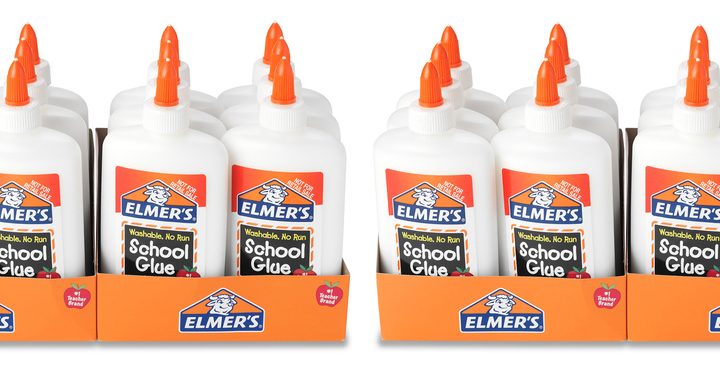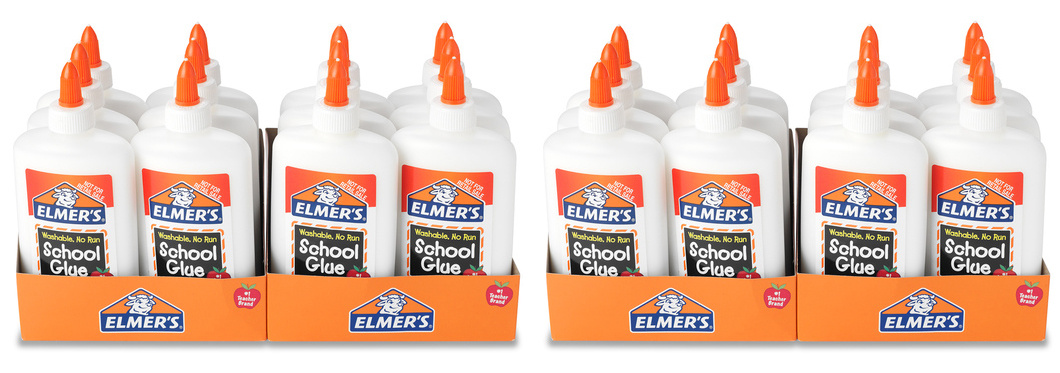When I was a little girl, my favorite time of the day was when the teacher brought out the glue, scissors and construction paper. Whether making cards for our parents or building a robot out of shapes — it didn’t matter to me.
Whatever the assigned project, I knew I would love it. The glue was the kind that came in small plastic bottles and got on everything. Glue sticks hadn’t been invented yet. My fingers ended up a sticky mess, as did the table, the paper and just about everything. The harder I tried to be neat, the messier my desk seemed to become.

Katherine Smith
The fun thing about this glue was that, when it dried, the glue became invisible and all you could see was a beautiful card or perfect flower made out of heart shapes.
Recently, when I was once again working on a craft project and, again, making a mess with my glue, I realized the current environmental crisis we are in is a lot like that bottle of glue. It’s a sticky mess, holding everything together, but when all is said and done, it’s mostly invisible. The problems are easy to see but the “hidden” or often not considered environmental chaos behind the issues is getting lost.
- Our much-needed discussions on racism in America cannot be fully contextualized without understanding how past and current environmental abuses have affected minority populations.
- The climate stress that already has caused upheaval at the local and governmental levels in Central and South America must be considered in order to fully understand the immigrant situation at our borders — a situation that is sure to get worse as the climate continues to deteriorate in those areas.
- The number of heat-related deaths climbs every year, especially within our inner-city populations and among our elderly. As summers get warmer, more will need to be done to help these populations survive.
- It seems like there are more natural disasters than there were in the past — and there are. According to a report by the National Centers for Environmental Information, the United States had one major disaster every four months in the past. Now we have one on average every three weeks.
- Young people are leaving the church in droves because they don’t hear any messages that speak to the issues they find important: climate change, gun control, discussions on crime and racism.
I wish I could tell you climate change isn’t real or isn’t as bad as everyone says, but I can’t.
I wish I could tell you everything will be all right and the climate crisis will be solved one day soon, but I can’t.
“Children born today will be dealing with the mostly disastrous effects of climate change for their whole lives.”
The reality is people are dying around the world, and in the U.S., right now due to the world’s environment rapidly getting worse. Children born today will be dealing with the mostly disastrous effects of climate change for their whole lives. Churches are on the front lines, as they usually are, yet their response to the current environmental chaos has been sorely lacking in most cases.
Why? Perhaps they consider this yet another “issue” they just can’t deal with. Or perhaps they feel they are doing all they can right now, or that there’s really nothing they can do. None of these responses is helpful.
I know many might cringe when it comes to climate change, but please don’t ignore it or be afraid of it. Instead, our churches and communities can be beacons of hope in our geographic areas.
There are many ways churches can help, like setting up cooling stations for migrant workers or the homeless or providing low-cost cooling options for community centers. Work with local partners to identify areas where there are food deserts and bring in extra help. Lead your community in learning about the environmental hazards they may be trying to escape. Host a weekend retreat on the care of creation, stewardship or environmental racism.
The church needs the leadership of people who understand the intersection between care of this created world and the biblical mandate to love our neighbor.
“The church needs the leadership of people who understand the intersection between care of this created world and the biblical mandate to love our neighbor.”
There is one other thing churches can do: Seek the Lord in prayer and humility!
If my people, who are called by my name, will humble themselves and pray and seek my face and turn from their wicked ways, then I will hear from heaven, and I will forgive their sin and will heal their land. (2 Chronicles 7:14)
Before you decide this passage isn’t for you or your church — maybe someone else needs to hear this — let me unpack a few things from this passage first.
We are God’s people! All who call on the name of the Lord are God’s people. That includes me, you and a few billion others in this world.
Humility, prayer, seeking and repentance. The liturgical season of Lent has just finished. This was a season we set aside time for personal reflection and sacrifice, prayer and expressions of gratitude for the life, death and resurrection of Christ we celebrate on Easter. Have we forgotten the myriad of sermons on true humility and the sacrifice of Christ as our model in life? Have we so quickly moved on to the end of school or the anticipation of summer break?
I was raised in the Catholic faith community and so I was used to making a list of my sins for recitation to the priest once a month. The passage above does not include a list of sins; however, Christians from all sides of our current political debate seem to have a list of “sins” they see in others but don’t seem to find in themselves.
In case we have forgotten, Paul states that “all have sinned and fall short of the glory of God.” No list needed or even wanted.
The final part of the Chronicler’s message from God to his people takes the form of a very simple covenant. If we do X then God will do Y. If we are humble enough to go to God and ask forgiveness of our sins, then God will heal our land. Does our land, our world, need healing? Absolutely! Not just our land here in America, where more and more droughts, floods, storms, fires, landslides and disease hit us every year, but around the world where wars are being fought over water rights, people are dying due to starvation and rising seas are covering village after village.
Paul tells us the world is groaning in pain similar to childbirth while waiting on healing (Romans 8:18-25). The world is waiting on us. Please don’t ignore the environmental crises we see and experience every day. Please don’t forget the world needs hope — our hope — the hope that God will heal this land.
Seek God. See what God can do!
Katherine Smith serves as executive director of the Baptist Creation Care Initiative.
Related articles:
Political gap on environment versus economy at widest point ever
The seminary professor who blazed a trail for environmental justice among Baptists
Woodland Baptist Church named Church of the Year for Environmental Concern


